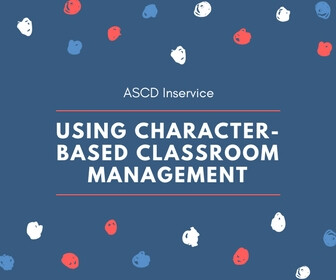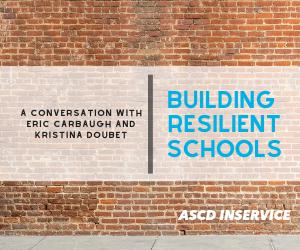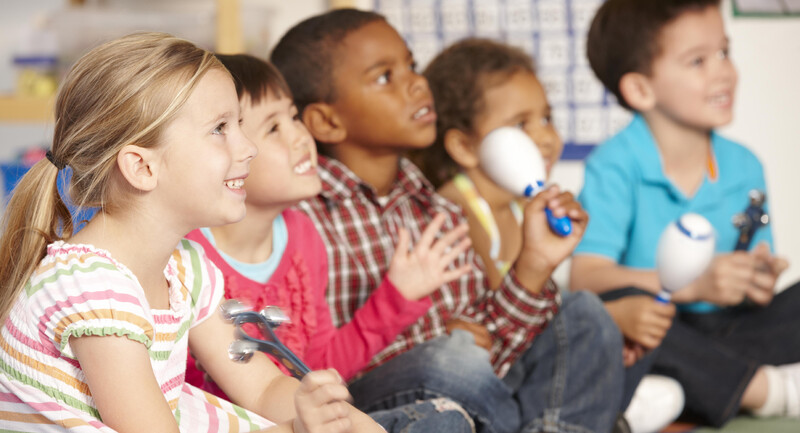The past two years have presented immense challenges for schools, but they’ve also revealed opportunities for reimagining a workplace that prioritizes teacher well-being, says author, performance coach, and positive psychologist Daniel Lerner. At this year’s ASCD Annual Conference, Lerner will lead the general session “Happiness, Success, and Realizing Your Potential in the New Normal.” Below, he unpacks some lessons for leadership and professional fulfillment from the pandemic.
How has the pandemic affected how people think about and prioritize their own well-being?
We've had a lot of time to think about what's important to us. One of the key factors was not only having an opportunity to pause but knowing that we all had this forced upon us. All of a sudden, we realized, Oh, it's actually most of us who are challenged by this.
[Before the pandemic] some of us also worked six days a week, doing 50- and 60-hour weeks, and we started asking ourselves, “Why was I doing that? Was I doing it because I needed to get the work done? Was I doing it because my company assumed that I would need to be there?” So, rethinking what our lives could be like if we prioritized well-being was a major outcome.
Another big priority that we didn't pay nearly enough attention to before the pandemic was addressing negative emotions and experiences. Previously, we suffered in silence a lot more often. But now being able to say, “I'm stressed out, I'm tired, I don't feel like a good parent,” or “I don't feel like a good teacher,” has become more prevalent. The people who were most resilient during COVID weren't the people who were happiest, necessarily. For certain people, positive emotions are important. But negative emotions, the ability to express them and deal with them, became really important.
What are some of the most common obstacles you've observed that prevent people from sharing their negative emotions?
In the conversations I have with students or with corporations, I hear the same thing: “No one wants to hear me complain. They're busy enough.” And I ask the same question, “If one of your friends calls you with a similar situation, having a really bad week, how would you feel about it? Would you be upset? Would you be impatient?” No one ever says they would be. So, then I ask them, “Why are you expecting that someone else wouldn't feel the same way for you?”
We don't want to look weak. We don't want to weigh down our friends. But I think this is changing very rapidly, in great part due to public figures like Michael Phelps and Simone Biles who are speaking more openly about their challenges. Social media also does not show people when they are struggling. Social media shows people when they are happy, successful, and thriving. We feel like if we talk about negative emotions, we're going to be outliers. So, there's not a whole lot of structural support around us, but it's emerging as online therapy becomes more available and people start to say things like, “Oh, you're seeing a therapist, too,” or “You're struggling, too.”
How can leaders contribute to the well-being of their colleagues?
Greater communication is an important start. Not only happy communication, but really challenging communication. If we look at recent data on vulnerability in the workplace, we find that when people ask for help and say, “I actually don't know how to do that, can someone help me?” or “I'm a little concerned about trying to make this happen without guidance,” they tend to have better relationships and greater overall well-being. So it is critical to have a place where it's expected and encouraged, where we want to hear what's challenging right now.
One of the tools that I saw many years ago is the devil's advocate model, where in meetings, one or two people are always assigned to be devil's advocate. Often, people tend not to raise their hand to say either “I don't understand,” or “I need help,” so if you designate one or two people as devil's advocate—even if they understand everything—to come up with a question about something they’re a little unsure of—it takes the pressure off others. Developing that for everybody communicates: “This is a community where we love learning, and we look forward to learning from one another.”
You have written about establishing positive lifelong habits that contribute to overall success. What is an example?
What I always do, when we're talking about interventions or exercises for well-being, is give the disclaimer that while this one might not work for you right now, it might work for you in 2 years, or 5 years, or 10 years. It's about where you are in life. So, take for example, a gratitude journal. Many people will have heard of it, I imagine, but it's a strong evidence-based way to raise our levels of positive emotion. What is a gratitude journal? Every night, you write three things that you're grateful for in a journal—say you're grateful for your dog, your partner, your apartment—and also write down why. So, it's not that we are just tracking gratitude, what we're doing is rewiring our brain to see things that we wouldn't have written about otherwise. I'm grateful for the person who held the door for me today because it reminded me that people can be kind and thoughtful. And one of the nice things about that is that if that's not what you need right now, if you need something like an accomplishment journal, you can ask yourself, “What are three things I set out to do today, and how did it feel to get them done?” I always tell my students, there's a lot of research that underpins the efficacy of a gratitude journal, but if it's not working for you, switch it up—maybe you need two things, maybe four things. We've seen some pretty good evidence that this is beneficial.
Teachers have had to adapt to a mountain of unexpected challenges over the pandemic. How can they support well-being for themselves and their students?
I think teachers and students right now have this very rare thing: A common experience. We want to acknowledge, together, that it was hard. We could reserve 5 or 10 minutes before every class to discuss, “What were the biggest challenges you faced? How did you get over them?” so that everyone has an opportunity to create a community through a shared experience and know that they can talk to one another about these things.
I think teachers and students right now have this very rare thing: A common experience.
I would also add that a lot of folks have rethought their work, not only if they are in the right line of work, but how they would choose to work. They have been reflecting on questions like, “What I am doing differently now? What did I learn? How can I frame this experience to look for the positive outcome?” I think this is an amazing opportunity to explore something beyond the standard pathway [in our professional practices and routines], which tends to guide us to a place where we're not necessarily happy. So, what are the other pathways we've thought about that we might look forward to?
This interview has been edited for space.








